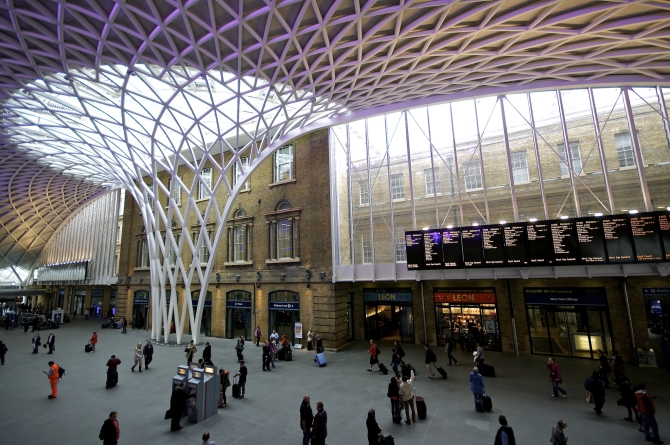As economic recovery continues to build, consumer shopping habits are becoming more and more difficult to predict for the nation’s retailers. As well as increasingly searching for discounts, consumers are placing a greater emphasis on convenience and click and collect initiatives – something which has proven immensely positive for railway stations nationwide.

In the past two years, Network Rail has invested significant amounts to increase its retail space by more than 20 per cent, with the result that stations owned by the group now command an impressive 600,000 sq ft of shop and restaurant units. Yet this is set to expand further, with Network Rail aiming for a target of 850,000 sq ft of retail space by 2019.
Network Rail is predicted to earn around £1.2 billion from rental income as a result of railway station expansions in the next five years, marking a huge step up from the £700 million earned between 2009 and 2014.
In the big London hubs, demand for retail space has grown to such an extent that rental values are now reported to be on a par with Oxford Street.
However, while this is good news for Network Rail, there are fears that the creation of retail hubs in railway stations will tempt yet more consumers away from the nation’s ailing high streets.
Commercial director at Network Rail, Hamish Kiernan, refutes these claims, saying; “We are not taking away from the high street, we are adding to it.
“Consumers are shopping more online and all we are offering is a top-up.
“We are taking advantage of a modern trend and nothing we have done will mean the failure of the high street.”
Despite this, figures show one fifth of consumers using facilities at Euston station are not, in fact, travelling by train at all. In addition, the increase in restaurants and cafes at London train stations have encouraged workers from nearby offices to utilise nearby station facilities, rather than visiting the local high street and providing custom for independent retailers.
Yet it is the boom in convenience shopping, more than anything, which has allowed railway stations to become a force in modern British retailing. Supermarkets such as Asda, Sainsbury’s and Waitrose have all chosen to install click and collect hubs at major London stations, with Network Rail having recently announced plans to launch a chain of 300 click and collect pickup stores in stations – part of a joint venture under the name Doddle.
Conlumino analyst Maureen Hinton explains why this idea is likely to prove profitable, saying; “It’s all about convenience.
“People don’t have a lot of time to spend on shopping.
“People can pick up their shopping on the way home and in big cities they have everything, coffee shops and restaurants, all in one place.”
With major investments into retail space currently underway at Edinburgh Waverley, Manchester Piccadilly and London Euston, it seems this trend is set to continue and is another factor the high street must learn to live with.